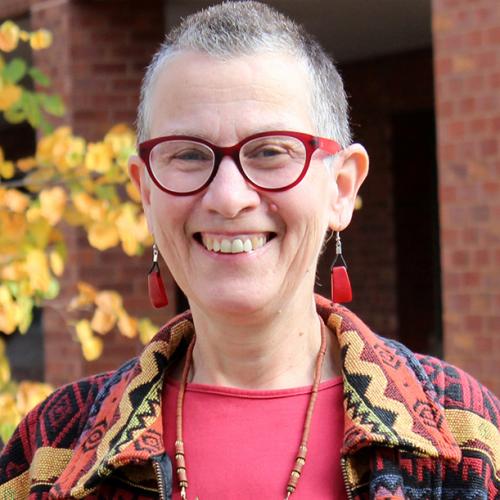Sharon Irish, project coordinator for the iSchool's Center for Digital Inclusion (CDI), has received a grant from the Graham Foundation for Advanced Studies in the Fine Arts for her upcoming book highlighting artist Stephen Willats. According to Irish, Willats' ideas about the need for repeated contact with each other to discover different perspectives are fundamental to education and information sharing.
Irish, an architectural and art historian, met Willats in London in 2003 and published her first article about his work the following year. Her book will examine key features of Willats' work and their connections with British cybernetics, experimental art, and urban design. She noted, "The University of Illinois had a strong connection to British cybernetics in the 1960s, and several people who were on the faculty here were influential to Willats."
"Willats remains committed to outcomes where there are not definitive answers but rather incremental shifts in people's perceptions of each other and their situations," she explained.
Irish's previous book, Suzanne Lacy: Spaces Between (University of Minnesota Press, 2010), focused on a California-based performance artist who often did large-scale participatory art projects in cities. Her research into Lacy's approach to social problems through activist and art lenses led Irish to Willats.
"I was intrigued by Willats' collaborations with tenants of public housing across the U.K. Exploring these practices allowed me to examine his distinctive use of cybernetics, or the science of communication and control, in relation to his community-based art," said Irish.
Irish holds master's and PhD degrees in art history from Northwestern University. Her research interests include cybernetics in the mid-twentieth century, alternative pedagogies, performance in its various meanings, and intersections among contemporary art, urban space, and public policy. She has received support for her research from the Arts Writers Grant Program of Creative Capital/Warhol Foundation, the Paul Mellon Centre for Studies in British Art, and the Graham Foundation Her book, Stephen Willats and the Social Function of Art, will be published by I.B. Tauris in 2019.
